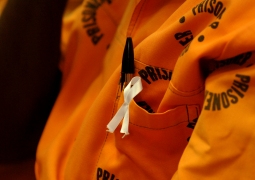
Education and skills development in prisons are very important and necessary for the successful rehabilitation of offenders, and also make reintegration into society easier after their release.
Members of Parliament’s Portfolio Committee on Justice and Correctional Services made this observation during the Committee’s oversight visits to correctional centres in the Eastern Cape and Gauteng provinces this week to assess the incarceration conditions of offenders and the state of the correctional centres.
Education will make the task of reintegration and reincorporation easy – people without education and skills are not easy to handle or fit in society, said Committee member, Prof Themba Msimang.
At the East London Correctional Centre for female offenders, inmates complained about the lack of opportunity to practise their acquired skills in the facility.
“We appeal that they be given that opportunity, it would be very fulfilling when people who leave the facility are welcomed into society, with something to offer, and do not become repeat offenders,” said Prof Msimang.
He said with skills and education, the offenders will be able to contribute to their communities and produce commodities that are demanded by the market when they are released.
The Committee interacted with inmates and listened to their stories, a majority of them crying out for education and skills development programmes.
“We allocate more funds into incarceration and not much into corrections and I would suggest we increase the budget and the number of officials involved in education and skills development in our correctional centres,” added another Committee member, Adv Loyiso Mpumlwana.
Incarcerated offenders at St Albans Prison in Port Elizabeth and Johannesburg Correctional Centre shared similar concerns about the lack of education, skills development and recreation facilities, which they said will help towards their rehabilitation and also make them fit into their communities on their release.
An inmate at St Albans told the Committee that he would love to study and participate in recreational activities to get his mind from the same old wrongdoings that got him into prison in the first place.
“I want to go to school so that I can have a second chance when I’m outside, but currently we just sit here all day with nothing to do, this is not rehabilitation, the criminal thoughts will not go away,” he said.
Another inmate who has been at the Johannesburg Correctional Centre for 17 years was also worried that the lack of education and skills development programmes in the centre was making a mockery of the whole notion of prisons being “correctional and rehabilitation centres”.
“My main worry is the non-availability of education and skills training programmes in this facility. No rehabilitation, yet we are expected to earn a living when we get out, how will we do that without education and skills?” he asked.
He added that most inmates were involved in drugs because they had nothing to do. “There are no activities, no rehabilitation, we are brewing criminals here,” said the inmate.
Committee member, Ms Chana Pilane-Majake, said she supported the need for skills development for inmates and for the Department of Correctional Services to provide opportunities for the offenders to hone their newly acquired skills.
“Practice makes perfect, part of the acquired skills can be applied in the facilities in areas like maintenance, food production and in that way make the process of keeping inmates cost-effective, utilise the skills to benefit the same people,” said Ms Pilane-Majake.
The Chairperson of the Portfolio Committee, Dr Mathole Motshekga, said skills are a very important commodity for self-development and the development of the country.
“We want you to study so that when you go back to your communities, you will be useful to society and do not become repeat offenders – we want you to be skilled and educated so you can become active and productive citizens. Most of you are still young, we still love you, the country needs you, we hope and trust that you will take advantage of being here and correct the wrongs that you did.”
He told the offenders that the Committee would do everything in its powers to engage the Department of Correctional Services to ensure that incarcerated offenders received skills and education for their successful rehabilitation and also realise the objectives of “Correctional Services”.
By Sakhile Mokoena
28 June 2017

